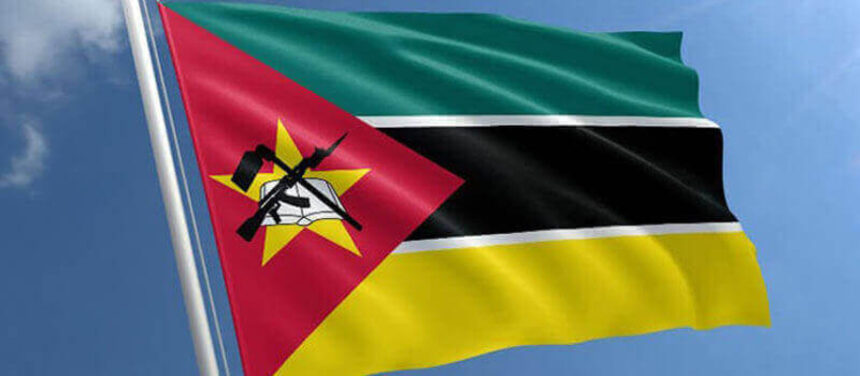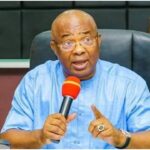Mozambique’s president-elect, Daniel Chapo, is set to take the oath of office this Wednesday, over three months after a highly contested election that has plunged the country into a period of political unrest. The election’s outcome has been the subject of intense dispute, triggering widespread protests, both peaceful and violent, which have led to chaos, loss of life, and significant destruction in several parts of the country.
Chapo, aged 48, won the election with 65% of the vote, but his victory has been fiercely criticized by opposition leaders, international observers, and a significant portion of the public, who claim the election was marred by fraud. His main rival, Venâncio Mondlane, returned from self-imposed exile to spearhead renewed protests, accusing Chapo and his supporters of being “thieves of the people.” Mondlane’s calls for demonstrations are centered around the belief that the election process was manipulated to secure Chapo’s victory.
The inauguration, however, will take place without the participation of Mozambique’s two largest opposition parties, Renamo and MDM, both of which have declared their intention to boycott the ceremony. These parties refuse to recognize Chapo as the legitimate winner of the election, further deepening the political divide in the country. Mondlane, a vocal critic of the electoral process, has called on Mozambicans to protest during the inauguration, intensifying the already high political tension.
While some in Mozambique remain hopeful about Chapo’s leadership potential, many others continue to question the legitimacy of his presidency. Civil society activist Mirna Chitsungo, who has worked with Chapo, expressed a sense of ambivalence, acknowledging his personal qualities but emphasizing that his ascent to power is rooted in a flawed and fraudulent electoral process. “Chapo is someone I admire greatly… However, he is assuming an illegitimate power. This stems from a fraudulent electoral process,” Chitsungo said, reflecting the deep skepticism that permeates the public discourse.
Chapo’s presidency will face a series of formidable challenges, including the need to unite a deeply polarized nation, address widespread public dissatisfaction, and fulfill his campaign promises of economic recovery and anti-corruption reform. Analysts warn that Mozambique is currently controlled by powerful entrenched cartels that dominate key sectors such as medicine, sugar, and even the criminal underworld, including kidnappings. Investigative journalist Luis Nhanchote has stressed the importance of Chapo forming a strong, capable team to take on these cartels and dismantle their influence. “Chapo will face many enemies… He must calm down Mozambicans and restore peace in the country,” Nhanchote remarked, underscoring the precarious state of the nation.
Chapo, who holds degrees in law and development management, represents a new generation of leadership, being the first Mozambican president born after the country’s independence war. His leadership marks a departure from his predecessors, many of whom were veterans of the liberation struggle. Chapo has made national reconciliation, electoral reform, and decentralization of power central to his political agenda, promising to bridge divides and offer more inclusive governance.
One of the most immediate tests Chapo will face is managing his strained relationship with Mondlane, who has emerged as a strong advocate for those dissatisfied with the election’s outcome. Despite their differences, some, like Chitsungo, believe that dialogue remains a possibility. “Chapo is a figure of dialogue and consensus. I believe he could meet at least 50% of Mondlane’s demands,” she suggested, highlighting Chapo’s potential to engage in constructive conversation with his critics.
In addition to political tensions, Chapo is under growing pressure to address allegations of human rights violations that have surfaced in the wake of the post-election protests. Reports of police brutality and the suppression of dissent have plagued the period following the election. Many analysts are recommending that Chapo consider dismissing controversial figures like Police Chief Bernardino Rafael and appoint a new attorney general who is committed to upholding both national and international legal standards.
Chapo’s election signifies a generational shift in Mozambique’s leadership, as he moves away from the legacy of previous leaders who were largely shaped by their roles in the independence movement. For Chapo to leave a lasting legacy, he must challenge the deeply entrenched interests of the past, including those of former leaders who continue to exert considerable influence in the country. As Nhanchote observes, “He is part of the new generation… If he wants to make a real mark on history, he has to challenge those past icons.”
Ultimately, Chapo’s ability to navigate the various political, social, and economic challenges he faces will determine whether he can unite the fractured nation, foster stability, and live up to his promises. If he succeeds, his presidency could mark a new chapter for Mozambique. However, if he fails to address the concerns of opposition leaders, civil society, and the general public, his tenure may be remembered as one defined by the very political turmoil that has plagued his rise to power.




